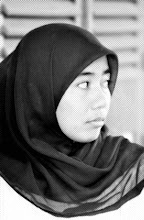Julius Richard Petri (May 31, 1852 – December 20, 1921) was a German bacteriologist who is generally credited with inventing thePetri dish while working as assistant to Robert Koch.
Petri first studied medicine at the Kaiser-Wilhelm-Academy for Military Physicians (1871–1875) and received his medical degree in 1876. He continued his studies at the Charité Hospital in Berlin and was on active duty as a military physician until 1882, continuing as a reservist.
From 1877 to 1879 he was assigned to the Imperial Health Office (German: Kaiserliches Gesundheitsamt) in Berlin, where he became an assistant to Robert Koch. On the advice of Angelina Hesse, the New York-born wife of another assistant, Walther Hesse, the Koch laboratory began to culture bacteria on agar plates. Petri then invented the standard culture dish, or Petri plate, and further developed the technique of agar culture to purify or clone bacterial colonies derived from single cells. This advance made it possible to rigorously identify the bacteria responsible for diseases.

















- Follow Us on Twitter!
- "Join Us on Facebook!
- RSS
Contact